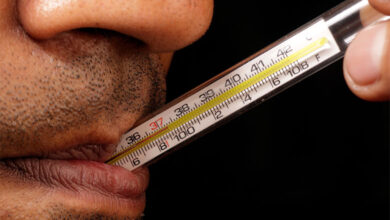Wearable health tech to measure gases released from skin
Some wearable devices, like smartwatches or fitness trackers, are already capable of measuring pulse rates or temperatures.

New York : Scientists have created the next generation of wearable health sensors that may be able to monitor the body’s health by detecting the gases released from a person’s skin.
Most research on measuring human biomarkers, which are measures of a body’s health, rely on electrical signals to sense the chemicals excreted in sweat. But sensors that rely on perspiration often require huge amounts of it just to get a reading.
Some wearable devices, like smartwatches or fitness trackers, are already capable of measuring pulse rates or temperatures. But the new method developed by researchers at the Ohio State University in the US would allow the technology to sense biomarkers related to metabolic disorders, like heart disease or diabetes.
“It is completely non-invasive, and completely passive on the behalf of the user,” said lead author Anthony Annerino, a graduate student in materials science and engineering at the University.
“Discerning health issues through the skin is really the ultimate frontier,” added study co-author Pelagia-Iren Gouma, Professor of materials science and engineering.
According to the research, published in the journal PLOS One, the product would be a small device a person could wear on low-sweat body locations, like behind the ear or on the nails.
Scientists have a long history of measuring the concentration of organic compounds in our breath – a type of gas – as indicators of health. One example is breathalyser – a device which can measure the amount of alcohol in a person’s blood or be used to detect viruses.
But such a gadget requires “active intent” and only provides a “momentary snapshot” of the body, Annerino noted. Compared to the amount of chemicals we release when we breathe, he said, this team’s sensors can operate on much smaller amounts of gaseous acetone released from the skin.
Acetone is one of the substances secreted from the skin that can tell researchers a lot about the inner workings of the human body. Concentrations of acetone in the breath have also been shown to be related to blood sugar levels and fat-burning rates.
To test their sensors, the researchers created a film material made out of derivatives of plant cellulose and electroactive polymers. This film can bend dramatically in response to how much of the acetone is detected in its environment.
Annerino’s team then placed the film over solutions containing ethanol (alcohol), acetone and water to gauge its sensitivity, selectivity and repeatability.
“We found significant bias toward bending more upon exposure to certain chemicals over others,” said Annerino.















